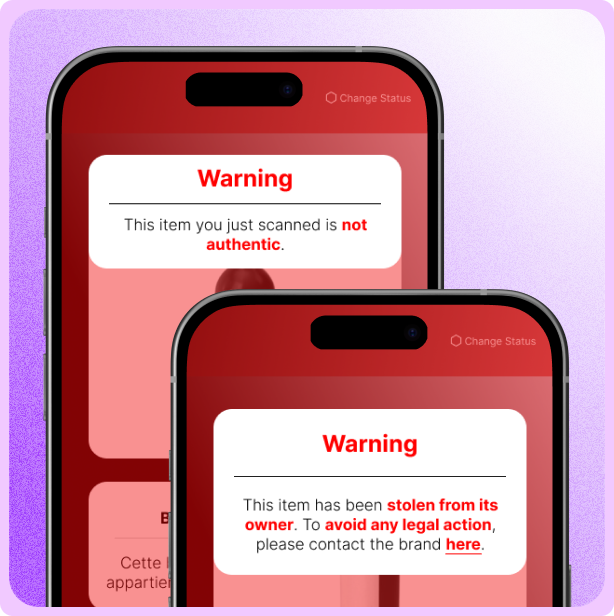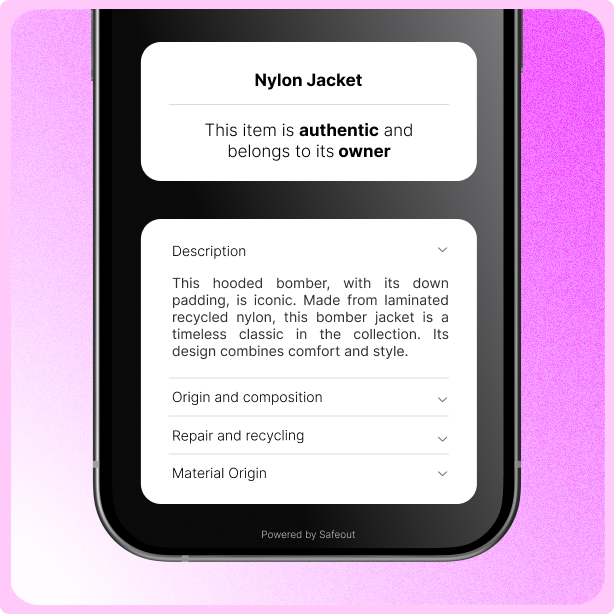









The first digital product passport with real benefits.
Powerful features that help brands prevent theft, reconnect with customers, and let buyers verify authenticity with a single NFC scan, even on the secondary market.

Anti theft and counterfeiting NFC.
In case of theft, the digital identity of the item can be immediately marked as stolen by its owner. Any potential buyer who scans it will verify that it’s authentic and not flagged as stolen.


Impossible to transfer property if the good is stolen
Reselling of stolen goods significantly reduced.


Connect with your customers.
Transform everyday objects into a direct communication channel with your customers. Send exclusive rewards, create engaging marketing experiences with every scan and provide key product information.


Impossible to transfer property if the good is stolen
Reselling of stolen goods significantly reduced.
European compliance for DPP regulation.
Brands operating in the European market must ensure their products meet the requirements of the Digital Product Passport. This includes providing transparent data on sustainability, materials, and recyclability to comply with regulations. We make this process seamless, ensuring full compliance without disrupting your existing operations.

Flexible Plans
Tailored to Your Needs.
Standard
What’s included
QR codes linked to scan page
Safeout-branded scan page
No data on the dashboard
Autonomous onboarding
Email support
Premium
What’s included
Access to our non-replicable NFC setup algorithm
Single white-labeled scan page
Access to dashboard data
Onboarding by a dedicated
team member
Limited number of admin users
Priority customer support
Entreprise
What’s included
Access to our non-replicable NFC setup algorithm
Multiple white-labeled scan pages
Access to dashboard data
Unlimited number of admin users
Scan-triggered marketing campaigns
What People Say About Us.

“In just a few months, we were able to return 20 stolen items to their rightful owners. I made a video with them for social media, and we reached 1 million views.”

“After mentoring over 500 companies, I’m truly amazed not only by the product itself but also by the team’s ability to deliver with such speed and precision.”

“They’re quick to assist, offer tailored solutions, and ensure a seamless experience.
Implementing Safeout in my art has been a game changer for my collectors.”

Microsoft & Rexel
“A strong team that listens to its clients' needs, always striving to improve and deliver the best possible service.”

“We were very pleased with the team's efforts to meet our needs. We now have simplified access to our customers, resulting in increased sales and greater customer satisfaction. I love the NFC watch glass they provide.”

“The platform is intuitive, well-designed, and seamlessly integrated with our systems, making processes smooth and efficient.”
Try now for free, pay later!
Try creating unique digital identities linked to QR codes with no commitment.


.png)